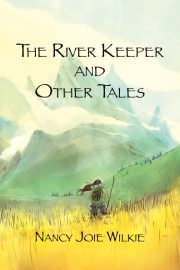Paying Your Bills with Copywriting
Writing is fun, but it can also be a tough way to make a living. The wait times for checks can be a drag, and the dry spells between one sale to another can be Saharan. Even if a sale is made, too often the money can be nominal. However, an avenue in the field where writers can potentially make a comfortable living, while working on their passion projects, is copywriting, also known as writing for advertising.
I first learned about copywriting through watching the TV show Mad Men, while living in New York. I was engrossed by the slick series, with its suave and stylish characters who spoke in terse, punchy dialogue, and who had to persuade the nation to buy anything from new sports cars to Hershey bars. I did some research and was astonished to learn that some of my favorite writers had spent time as copywriters, including Frederik Pohl who co-wrote The Space Merchants with C.M. Kornbluth, a science fiction novel about a world ruled by advertising agencies, not to mention the irascible Harlan Ellison.
Copywriting seemed like a great way to get paid while I got better as a writer. And I was right.
After watching the series, I began to study ads on the subway during my morning commutes and would play a mental game, trying to come up with slogans that were stronger than what was posted. Then, for my birthday, a friend of mine gave me the book, Secrets of a Freelance Writer, How to Make $100,00 A Year or More by Robert Bly. The title seemed cheesy, and I shelved it. But one day, while cleaning out my room I came across it and nearly tossed it in the trash, before giving the first page a chance. The book ended up saving my ass, and boosting my bank account.
It gave excellent instructions on how to procure work, and how to sell myself as a writer. It also gave a clear map about how to knock assignments out of the park, even with very difficult clients. The first thing I learned was that I was in desperate need of killer samples.
I did some research, and discovered a program that would give me creative office space in Manhattan in exchange for writing free copy. Not ideal, as I hate writing for free, but I was super green, needed samples and having 24/7 access to an office in the city seemed pretty cool. So, I wrote for the organization, built up a modest portfolio and then leveraged the samples I had, bringing them to the owner of another ad agency in the building, who gave me my first paid assignments penning a brochure for a luxury high-rise on Park Avenue South. It was challenging and fun and paid more money than what I was getting at my day job in entertainment.
From there, I land bigger assignments and began to get the hang of the business. Sometimes projects would be easy – and I could pen the work in a few hours, and make enough money to take a trip, or pay my bills. Other times, it could take tedious days or even weeks of back-and-forthing with people who ultimately didn’t know what the hell they wanted. Eventually, I got better at discerning and handling tough clients in advance. I learned how to deal with people, and deliver quality copy on demand. These skills came in handy in other arenas of the writing business.
The challenge of freelance copywriting isn’t just nailing the perfect phrase; it’s the procurement of consistent work. I quickly learned that the main gatekeepers for hiring copywriters were owners of boutique agencies, creative directors, designers and production staff. They are the decision makers. And the way to find them is usually through networking and referrals. Luckily, there is such a strong need for quality copywriters that there is always work to be had, so long as you have the gumption to find it.
Outside of networking, and going to industry events, head hunters and specialized job placement agencies can be instrumental for finding the right job as a copywriter. The one I dealt with most recently placed me at an agency that specializes in movie and TV ad campaigns ranging from clients like HBO to studios that produce sci-fi blockbusters. I was ecstatic and have been penning copy for some of the best movie posters and billboards coming out of Hollywood, and it’s a hell of a lot of fun, especially the sci-fi and comic book accounts.
It’s important to mention that there’s no shame in making a living as you work on what you always wanted to write on the side. Paraphrasing Gene Wolfe, too many writers see their day job as the enemy, but in reality, it’s usually a lifeline. And Stephen King always said that if you can keep your lights on through your writing, you have talent. As a copywriter, utility money is certainly doable – and so is rent. Copywriting teaches many key lessons every writer should learn. Like how to keep deadlines, sell yourself, and work with others. It is its own medium, an art that trains one in the precision of wordplay. The most important part is that it can pay writers fairly well, while they practice what they love doing–writing itself.
•••
Originally from Maui, Hawaii, Joshua is a writer based in Los Angeles. He began his career at Marvel Entertainment where he served in their licensing and branding department. There, he learned the business of how storytelling can be tied to merchandising and received his first break writing for their web series, Marvel Heroes: What The?! and Marvel.com He has also worked for Disney Publishing Worldwide, Fox Television and Netflix.
Joshua is the recipient of a Devery Freeman Prize in Screenwriting, a Brooklyn College Departmental Award for Distinguished Television Writing, and an Upright Citizen’s Brigade Diversity Scholarship. He has written for Marvel, Heeb, Motherboard, Omni, Geeks Media and is represented by Abrams Artist Agency.



